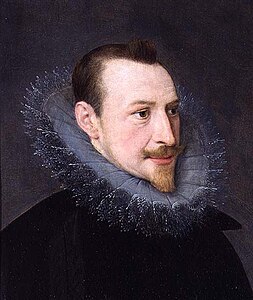Analysis of Sonnet XLVIII
Edmund Spenser 1552 (London) – 1599 (London)
INnocent paper whom too cruell hand,
Did make the matter to auenge her yre:
and ere she could thy cause wel vnderstand,
did sacrifize vnto the greedy fyre.
Well worthy thou to haue found better hyre,
then so bad end for hereticks ordayned:
yet heresy nor treason didst conspire,
but plead thy maisters cause vniustly payned.
Whom all the carelesse of his griefe constrayned
to vtter forth th'anguish of his hart:
and would not heare, when he to her complayned,
the piteous passion of his dying smart.
Yet liue for euer, though against her will,
and speake her good, though she requite it ill.
| Scheme | ABABBABAACACDD |
|---|---|
| Poetic Form | |
| Metre | 100101111 110101101 01111111 1110101 1101111101 1111111 11001101010 1111111 11011111 1111110111 011111101 011011101 111110101 010111111 |
| Closest metre | Iambic hexameter |
| Characters | 587 |
| Words | 106 |
| Sentences | 5 |
| Stanzas | 1 |
| Stanza Lengths | 14 |
| Lines Amount | 14 |
| Letters per line (avg) | 34 |
| Words per line (avg) | 7 |
| Letters per stanza (avg) | 472 |
| Words per stanza (avg) | 104 |
Font size:
Submitted on May 13, 2011
Modified on March 05, 2023
- 32 sec read
- 89 Views
Citation
Use the citation below to add this poem analysis to your bibliography:
Style:MLAChicagoAPA
"Sonnet XLVIII" Poetry.com. STANDS4 LLC, 2024. Web. 28 Apr. 2024. <https://www.poetry.com/poem-analysis/9263/sonnet-xlviii>.


Discuss this Edmund Spenser poem analysis with the community:
Report Comment
We're doing our best to make sure our content is useful, accurate and safe.
If by any chance you spot an inappropriate comment while navigating through our website please use this form to let us know, and we'll take care of it shortly.
Attachment
You need to be logged in to favorite.
Log In